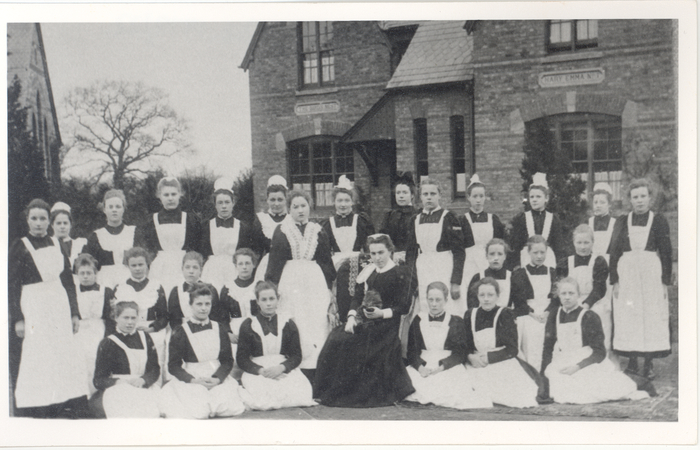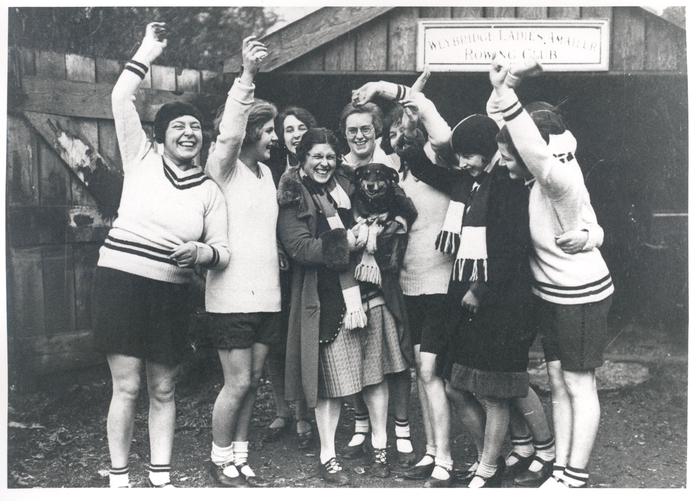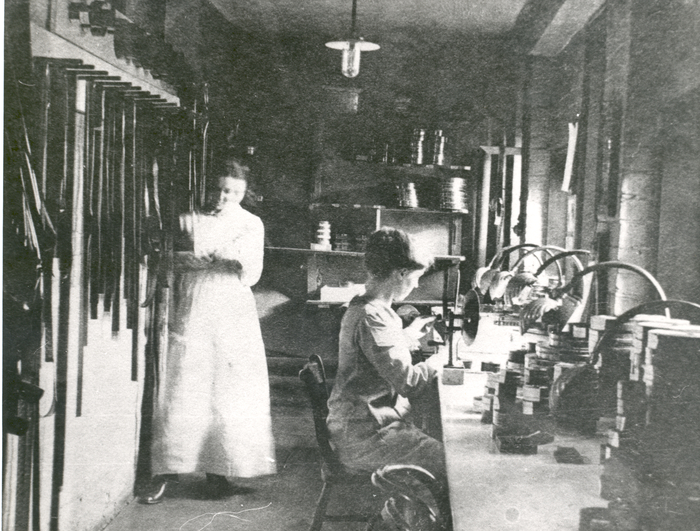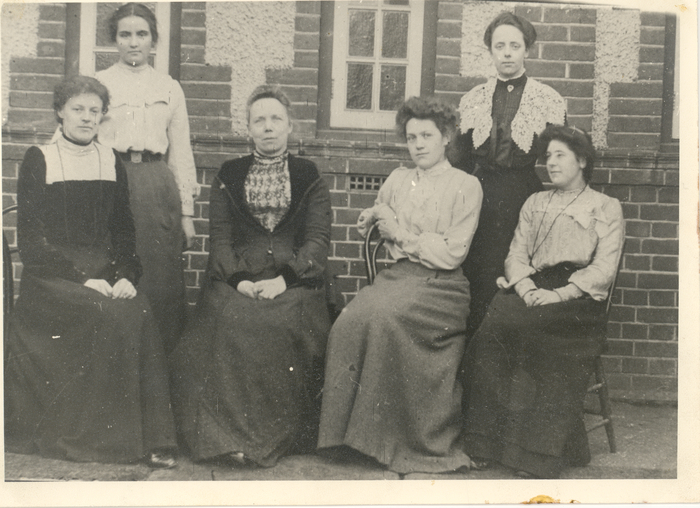Explore the latest news and find out what's on this month
Explore our learning offer for schools, families and community groups
Uncover the rich history of Elmbridge with our latest online exhibitions
Want to discover more about your local area?
Explore the latest news and find out what's on this month
Explore our learning offer for schools, families and community groups
Uncover the rich history of Elmbridge with our latest online exhibitions
Want to discover more about your local area?
In the museum world, rainy March brings with it much to be excited about. This unremarkable month is currently filled with celebrations of remarkable women, as part of Women’s History Month.
Within this month, International Women’s Day (8 March) aims to highlight “the social, economic, cultural and political achievements of women”, and calls for gender equality. Most have only to glance at their phones to see its vast impact. Throughout the day, for me, notifications poured in from social media giants like Twitter and Facebook, and my news feeds were full of female appreciation. ‘Happy international women’s day’; ‘here’s to strong women’; and ‘let’s celebrate inspiring women’ were sentiments expressed by institutions and individuals across the globe, repeated so much that they became almost cliché.
It’s incredible that one month, and one day in particular, can bring so much attention to the work of past and present women. But there comes a point when the social media frenzy turns into nothing more than an echo-chamber. Well-meaning words become meaningless, and many companies see the day as an opportunity to insincerely virtue-signal – and then forget about women for the rest of the year.
Why should we have to erase men from the historical picture to be able to see women? In his book ‘Taken For Granted: The Remarkable Power of the Unremarkable’, author Eviatar Zerubavel goes as far as arguing that both International Women’s Day and Women’s History Month are detrimental to the female cause in the way they separate women from ‘the rest of history’. He states that “by marking ‘women’s history’ or ‘Black History Month’, we are also reinforcing the apparent normality of the history of white men.”
Zerubavel makes an important point. To carry forward the momentum created by International Women’s Day, real changes need to be implemented beyond the single day itself. Integrating women into the wider historical narrative is something that museums and public history organisations are well-placed to do – whether it is through webpages, television, historical novels, essays, exhibitions, or learning sessions. Here at Elmbridge Museum, we try to weave this into every exhibition and into much of our longer-lasting online output. Everyday Heroines looked at the variety of female influences on the Borough’s history, and our 2018 People of Elmbridge exhibition went even further. In the latter, women made up exactly half of the varied stories we told, blended in with male narratives.




United Nations Ombudswoman Shireen Dodson rightly points out that “if we want our girls to benefit from the courage and wisdom of the women before them, we have to share the stories.” The statement is entirely true, and it is a sentiment also promoted in the flurry of activity surrounding International Women’s Day and Women’s History Month. But it does imply that the only women who are of value in history are the ones who have achieved. What about ‘ordinary’ women – those who lived ‘average’ lives, adhered to the status quo, fulfilled traditional roles, and are often regarded as weak? Even the nasty women, the unsavoury characters, and those with tragic, short-lived, or simply unexciting stories? These are the ‘unremarkable’ women who International Women’s Day’ tends to freeze out of the narrative through its emphasis on achievement and greatness.
Gradually, an increasing effort is being made to counteract this ‘great women’ narrative. Perhaps one of the most prevalent of these recent studies has been ‘The Five’ by Hallie Rubenhold, a novel which investigates the five female victims of Jack the Ripper. Instead of focussing on the Ripper himself, or revelling in the gory fates of his victims, Rubenhold tells the stories of the women’s lives before their murders. Nearly all of the tales are punctuated by misfortunes such as debt, marital breakdown, alcohol abuse and death. There is barely anything romantic, heroic, or glorious about the stories of any of these women, but Rubenhold still recounts their lives with the respect and emphasis they deserve. In the same vein, the East End Women’s Museum attempts to regain the integrity of London’s 18th and 19th Century working-class women, as a rebellion against the tasteless sensationalism which is often the main concern of Ripperology. As a result, both examples uncover much about the plight of women in similar social positions, and whose ‘unremarkable’ lives have long since been forgotten.
My point is that good historians, museums and public history institutions should not cherry-pick the women they want to present. Women’s history, just like men’s, is full of ordinary, extraordinary, inspiring and uninspiring stories. In Women’s History Month, then, let’s start to embrace all women into the wider historical narrative – both the ‘remarkable’ and the ‘unremarkable’ ones.